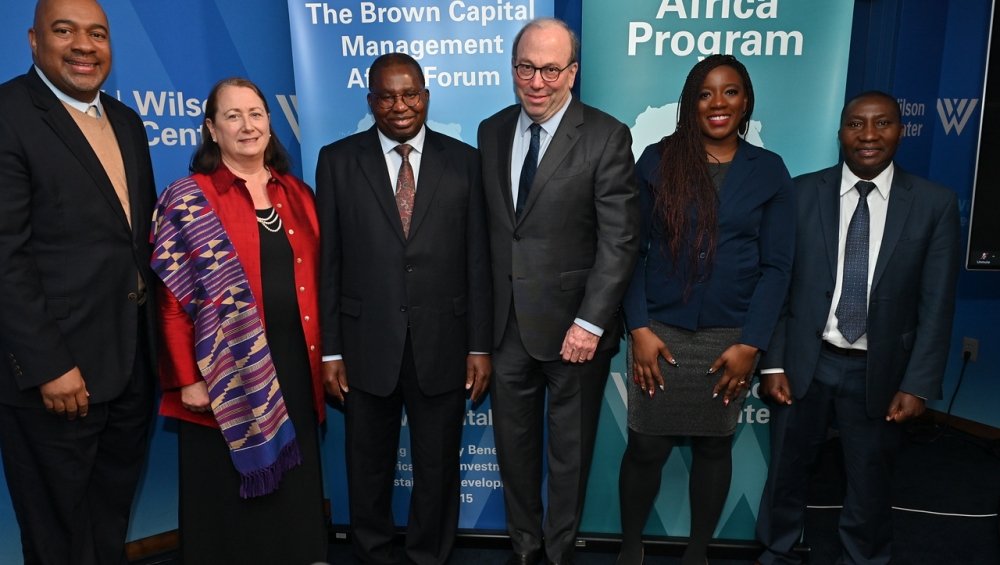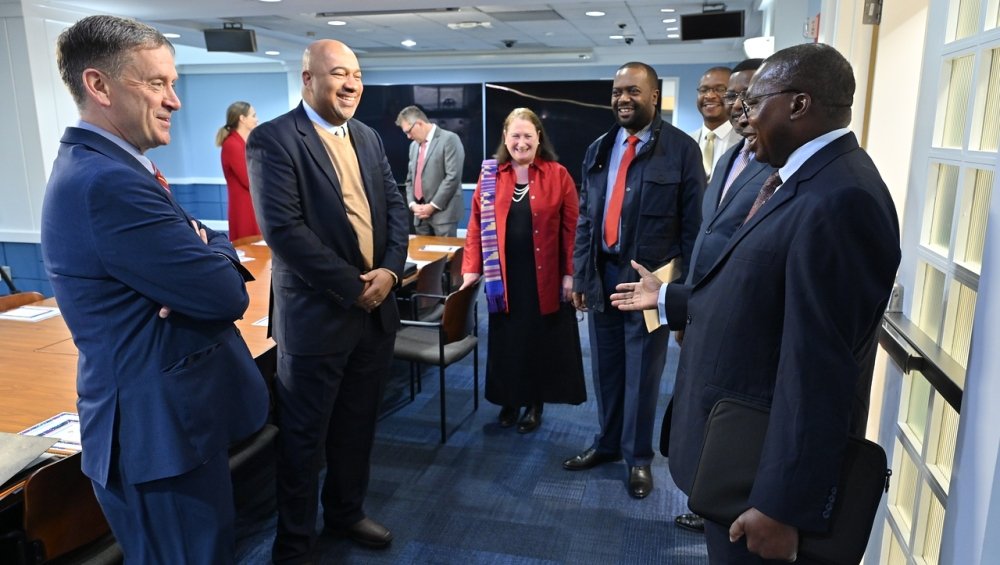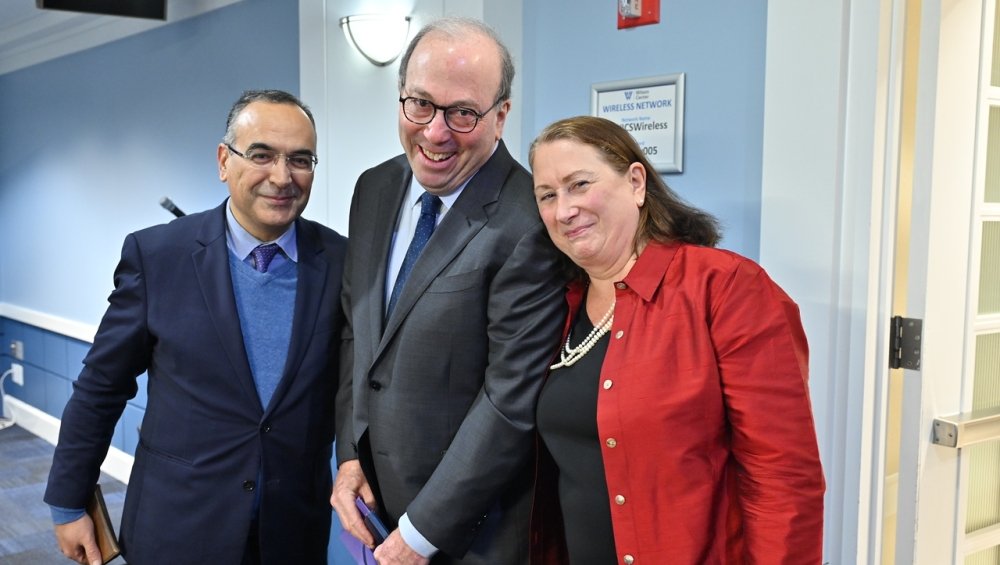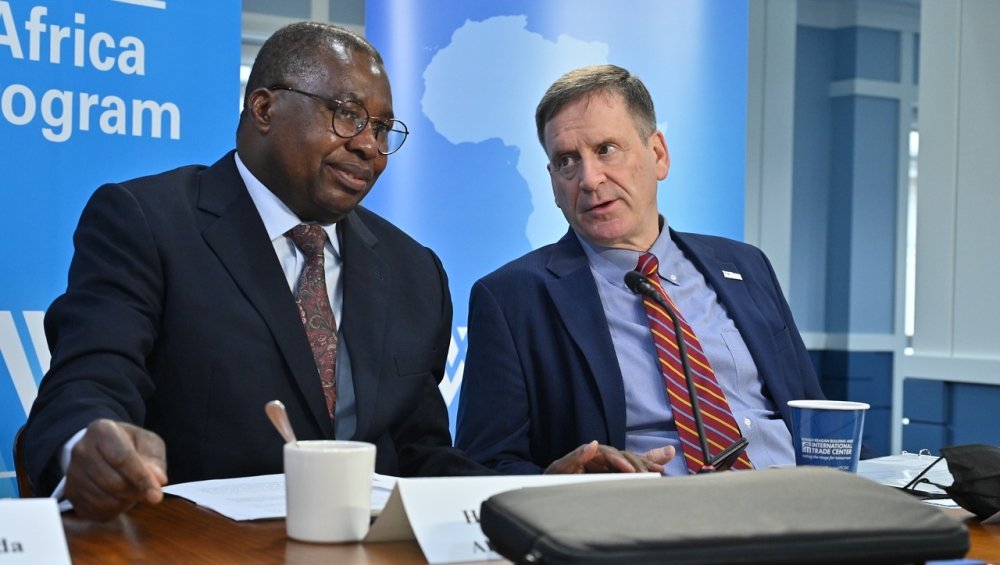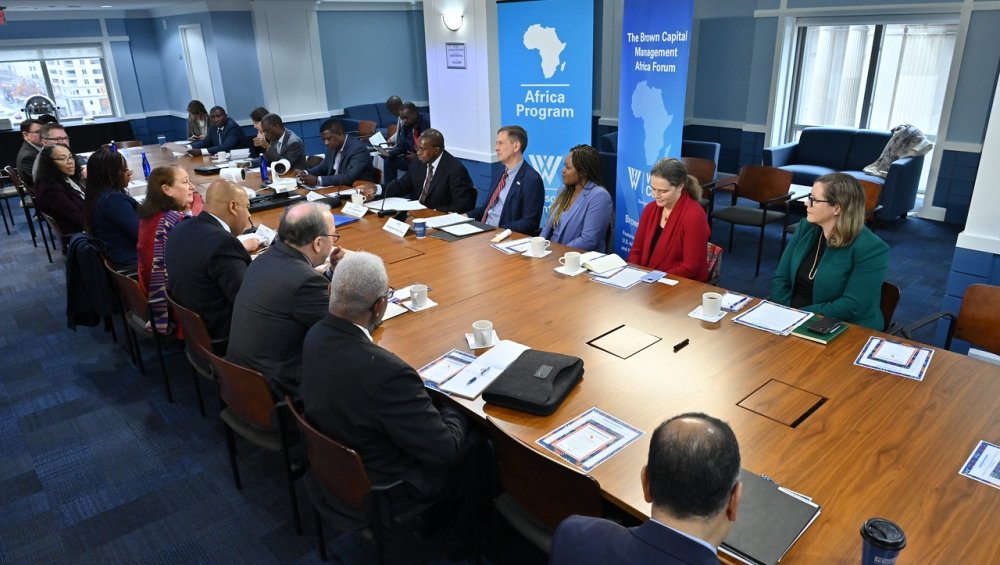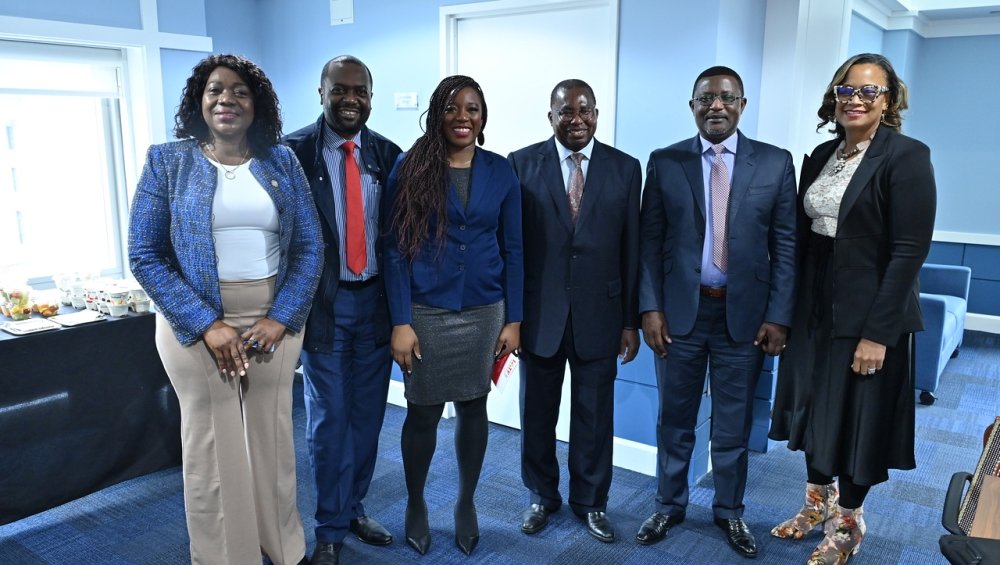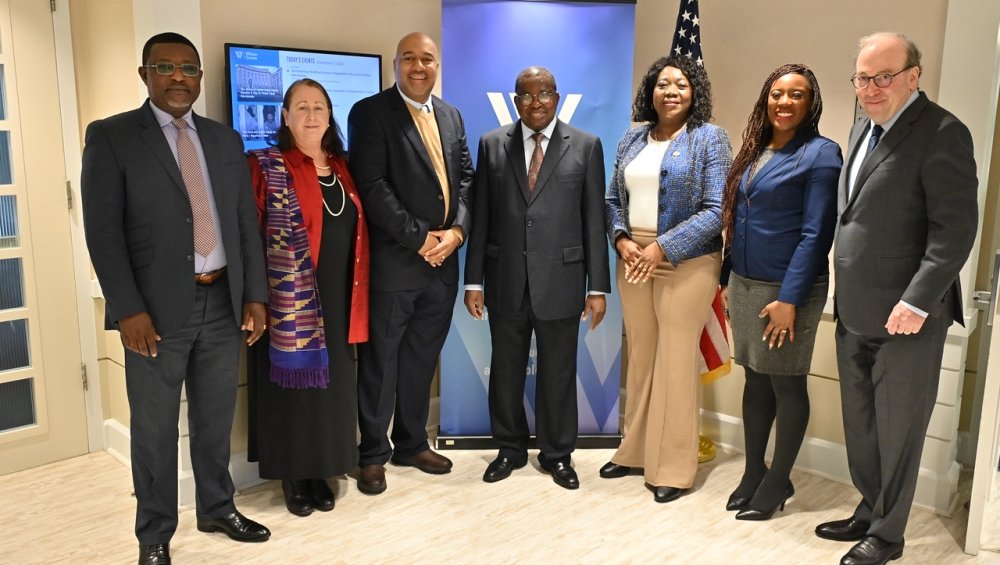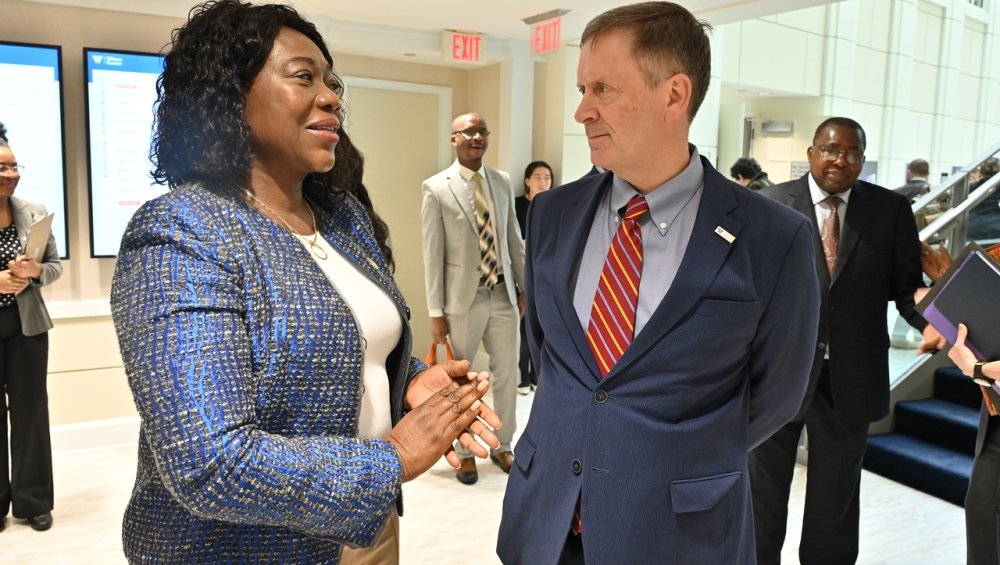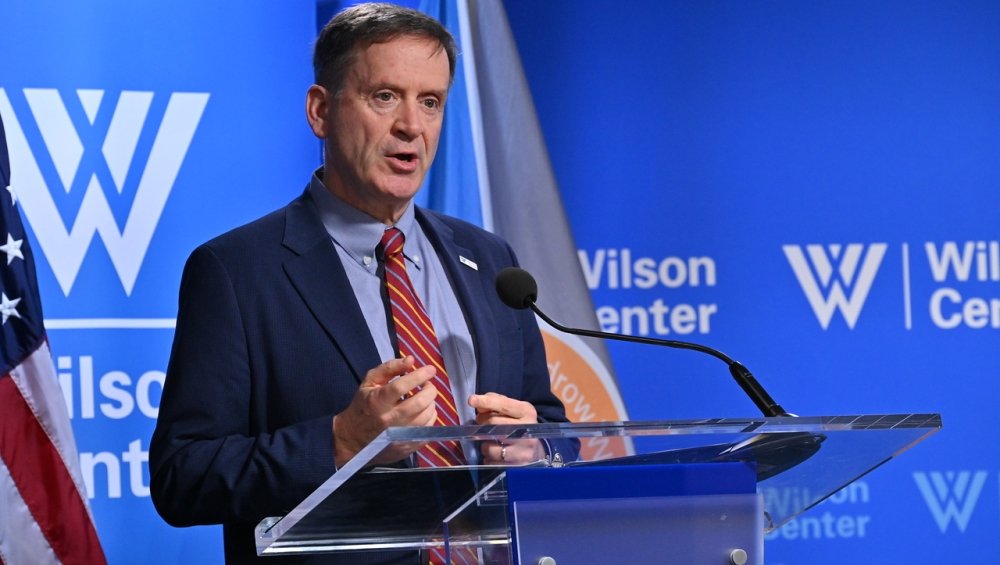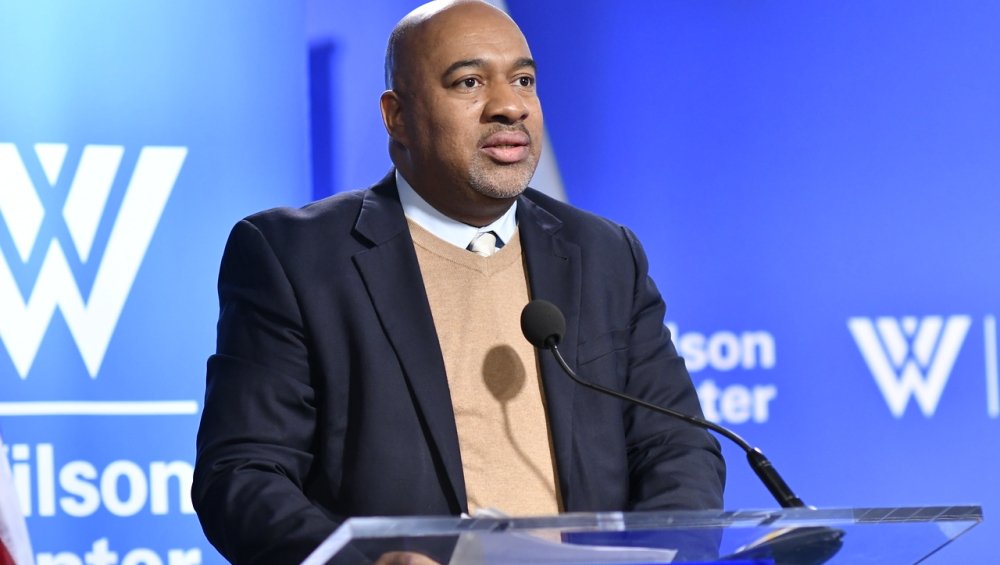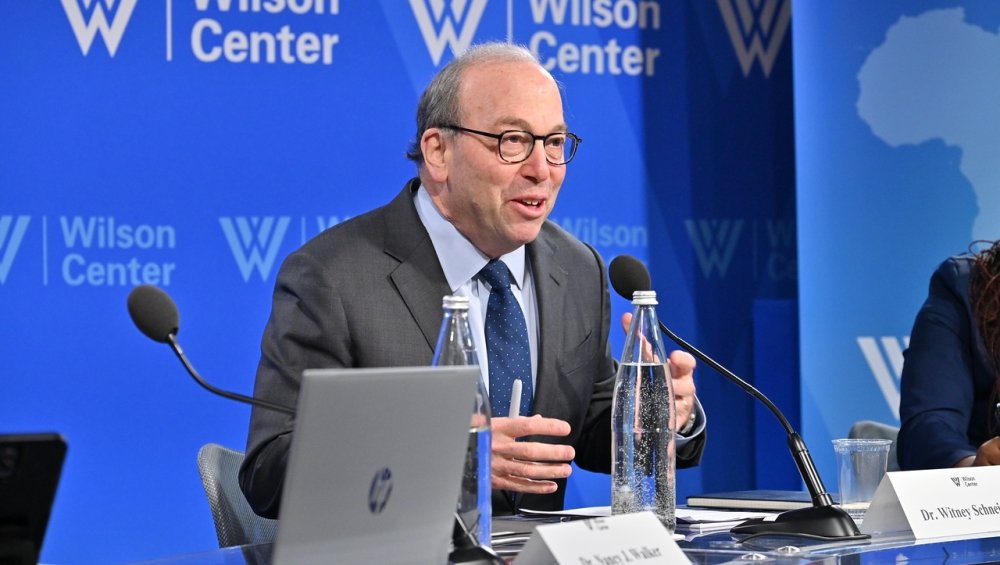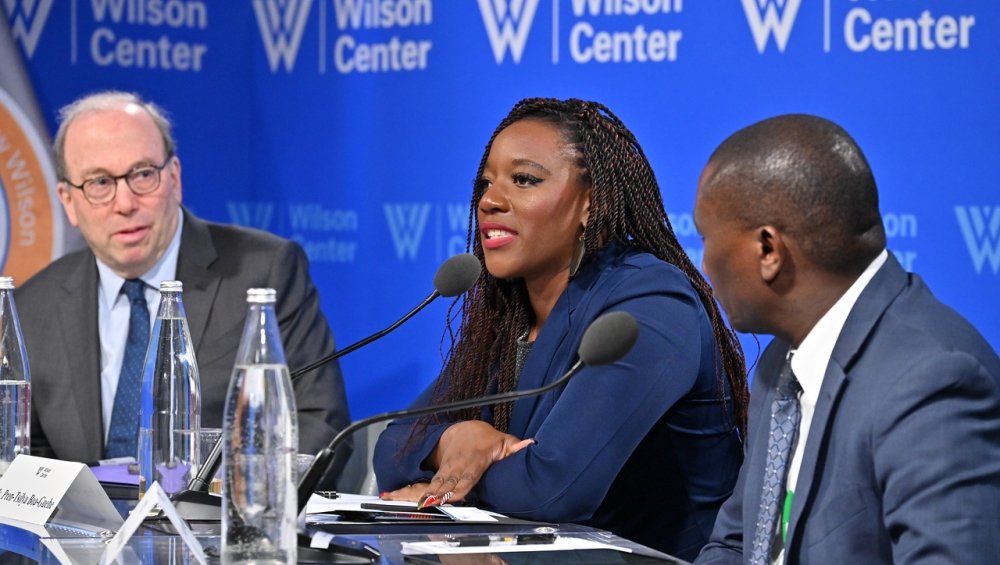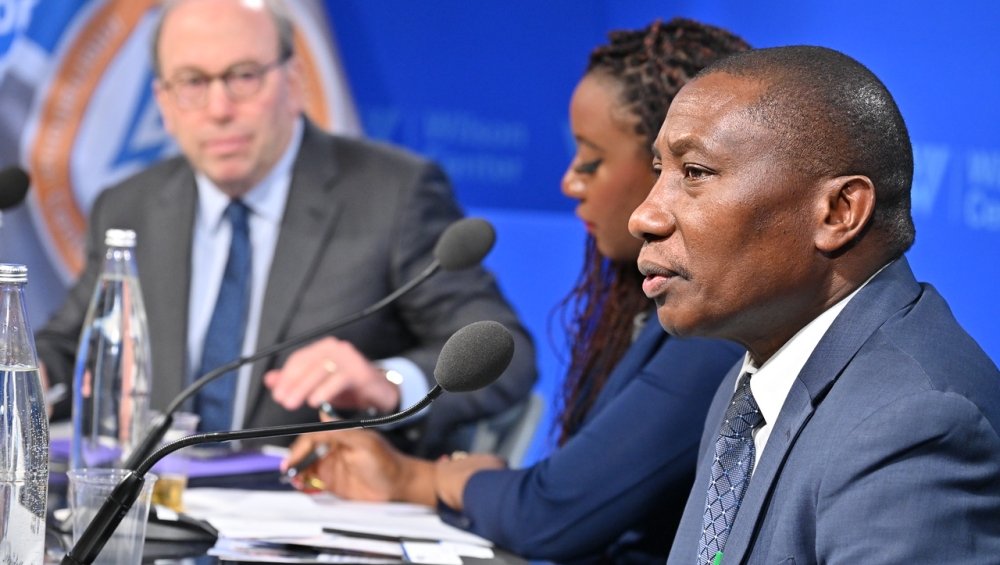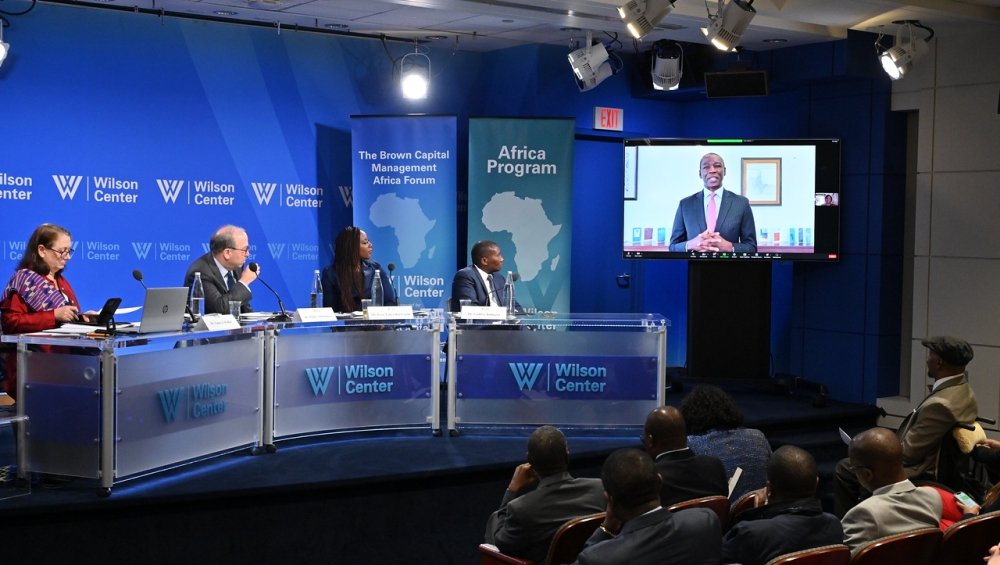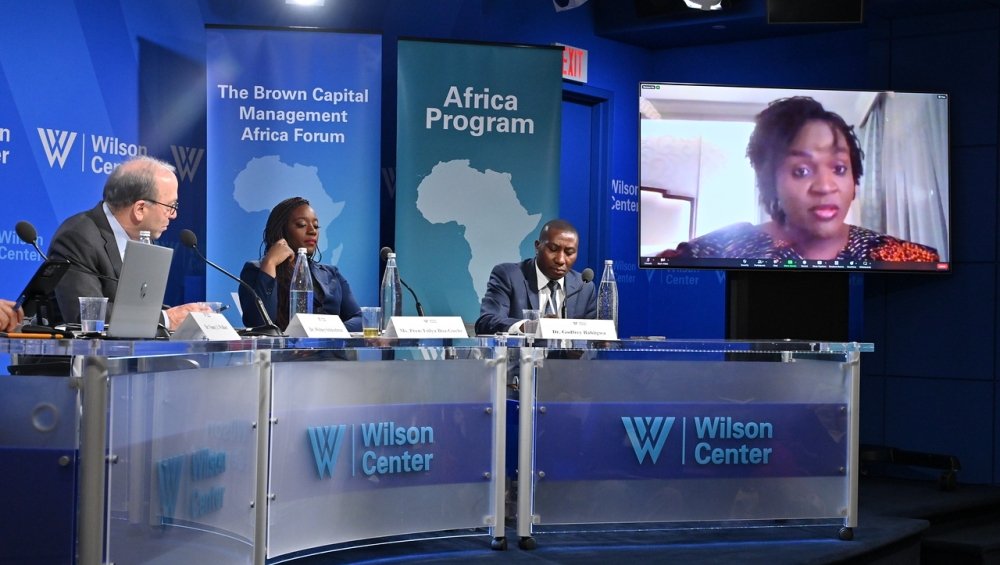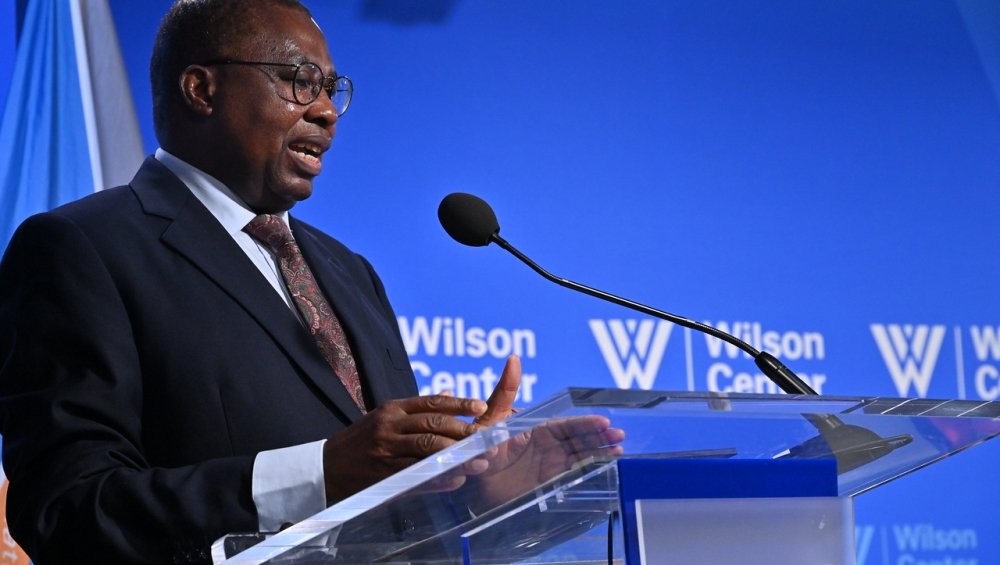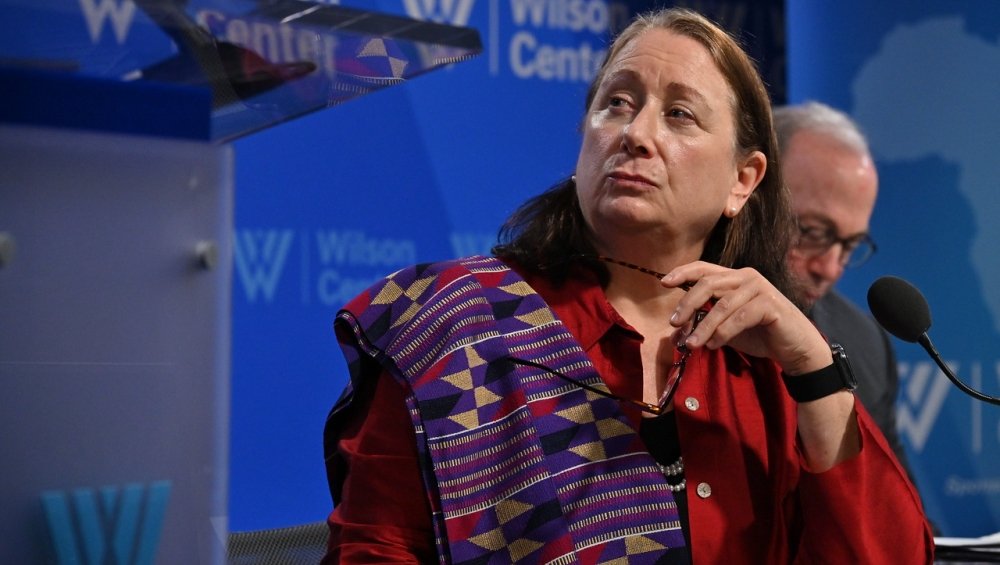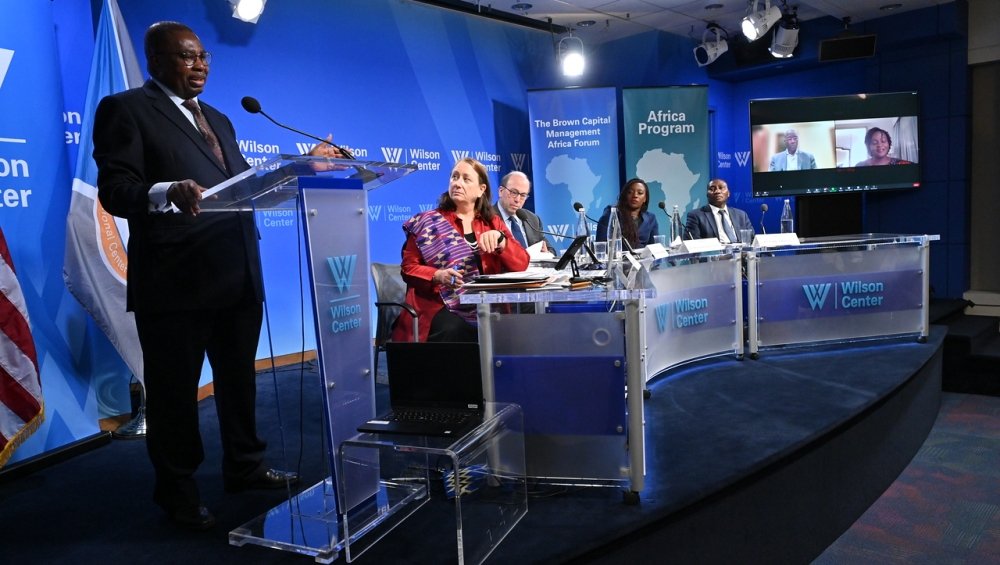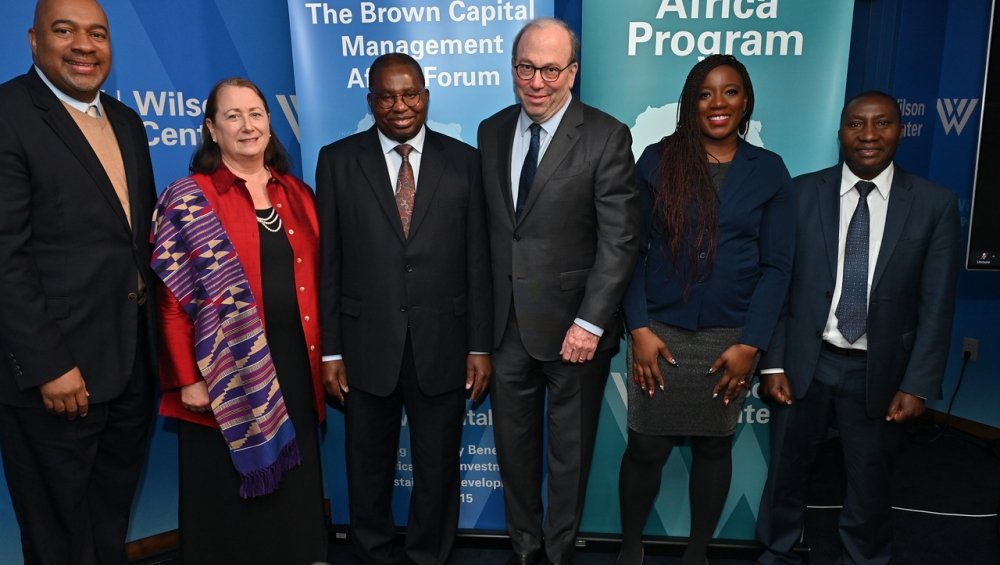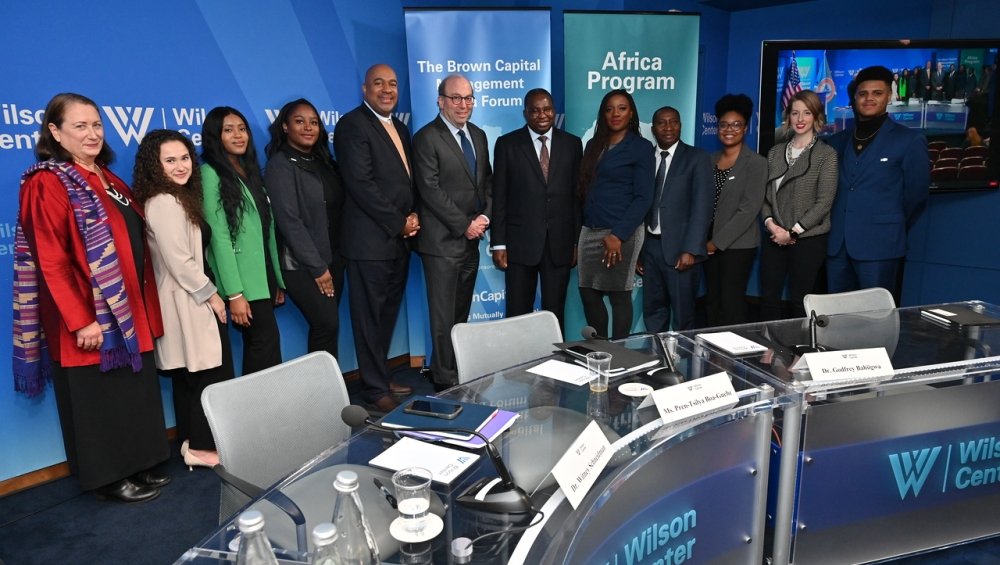Transforming US-Africa Economic Engagement into a 21st Century Partnership
Submit a question
A private breakfast preceded the event, during which H.E. Ambassador Albert M. Muchanga, African Union Commissioner for Economic Development, Trade, Tourism, Industry and Minerals, provided keynote remarks. Commissioner Muchanga discussed the goals of the upcoming US-Africa Leaders Summit and recommendations to collaborate on practical policy and partnerships that will allow for food security, economic recovery, structural transformation and green transition. These policies include the support of continental integration, an extension and expansion of the African Growth and Opportunity Act (AGOA), attracting frontier and large-scale investments by reducing perceived investment risk, eliminating illicit financial flows, and mobilizing the African diaspora in the United States to contribute to Africa’s export competitiveness and sustainable development. Participants included a delegation from the African Union, US government officials, and leaders from NGOs and the private sector.
Ambassador Mark Green, President and CEO of the Wilson Center, provided welcoming remarks and discussed the significance of the US-Africa Leaders Summit and the importance of private enterprise and the development of a true partnership between the United States and Africa that will benefit young leaders and entrepreneurs. Mr. Michael Forster, Chief Operating Officer and Chief Financial Officer of Brown Capital Management, provided introductory remarks on behalf of Brown Capital Management. Mr. Forster discussed the history of the Brown Capital Management Africa Forum, with the first event discussing the 2014 US-Africa Leaders Summit, the challenges of increasing US trade and investment with Africa, enhancing the economic relationship, and how misconceptions about Africa skewed US engagement. He emphasized the importance of convening US and African leaders in the public and private sectors to strengthen dialogue and build true partnerships based on mutual respect and mutual benefits.
Dr. Nancy J. Walker, Africa Program Public Policy Fellow, introduced the panelists and co-moderated the event.
Dr. Witney Schneidman, Senior International Advisor for Africa, Covington and Burling LLP, opened the conversation and addressed Africa’s Century and the United States’ commercial partnership with Africa. He described the opportunities and challenges that will define the century. The continent has a growing population with a median age of 19. Those on the continent are primed to innovate technologically, with 600 million cell phone users accessing the internet. The creative market, like Nollywood, is a critical space that will allow African people to tell their own stories. The continent is on track to be the world’s fifth largest economy, with large implications for trade and investment. A supportive US-Africa partnership can facilitate development that will help the continent face the defining challenges of the century. The continent will face climate change, defining their narrative, and expanding economic integration. Dr. Schneidman argued that mobilization of financing is crucial to all the defining aspects of Africa’s century. He additionally addressed the role of good governance and the private sector in development. Dr. Schneidman recommended that public and private sectors collaborate to limit corruption and create enabling business environments.
Dr. Joy Kategekwa, Strategic Advisor to the Assistant Administrator and Regional Director, Regional Bureau for Africa, United Nations Development Programme, addressed how to recalibrate the US-Africa trade relationship with consideration of the African Continental Free Trade Area (AfCFTA), the African Growth and Opportunity Act (AGOA), the African Union’s Agenda 2063, and a changing Africa. A partnership between the United States and Africa has to build on the AfCFTA, support a “made in Africa” revolution, analyze China-Africa cooperation, and learn from the last 22 years of AGOA to expand on its success and understand the lack of success with trade of manufactured goods and raw materials seen in various countries. Dr. Kategekwa recommended that the United States and African countries listen, respect each other’s views, and co-create policies and real business opportunities to bolster trade with African countries. The United States should consider an extension of AGOA on its non-preferential terms to allow for the AfCFTA to develop, strengthen production, create integration into the global trading system, and assess areas where a US- Africa partnership can support these goals. She also discussed the role of the African diaspora and the opportunity to increase investments on the continent. Dr. Kategekwa recommended that the Biden Administration incentivize US businesses to invest and create joint ventures with local African companies. These ventures should connect to the value chains critical to development that will emerge from the AfCFTA.
Dr. Godfrey Bahiigwa, Director of Agriculture and Rural Development, African Union Commission, discussed agriculture and food security with consideration of Africa’s growing population, rising incomes, and the opportunities created by the AfCFTA, such as the ability to distribute food from food surplus countries to food deficit countries. Dr. Bahiigwa addressed three roles the US partnership can play in helping to increase food security; increasing production on farms, developing infrastructure, and developing food and trade policy. He stated that the US private sector could play a role in helping farmers access productivity-increasing inputs. Dr. Bahiigwa recommended using public-private partnerships to develop reliable infrastructure and connect African food markets. He also discussed using partnership with the US Department of Agriculture to develop continental food safety standards to ensure the safety of traded food products. Furthermore, the conversation around Genetically Modified Organisms (GMOs) in Africa should revolve around farmers receiving assurance that foreign companies do not control their livelihoods, and addressing fears around the effects of GMOs on health. Dr. Bahiigwa discussed the challenges of reporting on the Comprehensive African Agricultural Development Programme (CAADP) caused by weakness in data systems. He recommended investment in archival and retrieval systems on the continent to help inform strategy and policies. Lastly, Dr. Bahiigwa explored how the US partnership, through public and private investment, can help to inform planning by promoting research and developing mutual accountability measures that will boost agriculture production and help the continent adapt to climate change.
Dr. Raymond Gilpin, Chief Economist, Regional Bureau for Africa, United Nations Development Programme, noted that Africa differs vastly from post-World War II Europe and development approaches should also differ. By 1948, temporary development aid intended to preserve Europe’s macroeconomic stability and contain inflation through trade. This model influenced current development financing without consideration of the structural challenges African countries face. Partners should consider that African countries are not competitive in the global trading system; their economic, social, and political institutions are fragile; many countries lack infrastructure and technology; and many face instability and conflict. Dr. Gilpin recommended that the US, and other partners, frame aid as temporary; move toward green transitions in Africa, focus development financing on what Africa needs; move to finance structural economic transformation; and implement a mutual accountability framework. Dr. Gilpin also recommended that the United States and other development partners elevate development assistance to make it more effective, empower African initiatives that will allow for full use of natural and financial resources, future-proof development financing by supporting financing instruments that cater to the future, such as sustainability funds, carbon trading, and diaspora bonds, and create strategic partnerships with private finance and technology firms.
Ms. Pren-Tsilya Boa-Guehe, Government Affairs and Public Policy Manager, Google, emphasized that the digital transformation in Africa is underway. Ms. Boa-Guehe framed the current landscape of an increasingly connected Africa with an expanding market size. She highlighted the need for the United States and African countries to develop deliberate and coordinated investment partnerships that target the growing technology sector. This investment could develop the sector into an anchor for trade partnership. Ms. Boa-Guehe offered four areas of investment including: talent and skilling, innovation, infrastructure, and regulation. Investing in a public-private relationship that considers these areas will allow the United States to remain competitive in this space. Ms. Boa-Guehe discussed private and public sector investment in education systems, training, and ecommerce platforms to encourage innovation. She recommended that the United States develop a model of collaboration between the technology industry and regulatory bodies to support technological innovation and start-ups in Africa.
Following the panelists’ remarks, Dr. Walker introduced His Excellency Ambassador Albert M. Muchanga, African Union Commissioner for Economic Development, Trade, Tourism, Industry and Minerals to provide concluding remarks.
Ambassador Muchanga emphasized the importance of the many topics discussed, including the expansion of AGOA, deeper economic integration through the AfCFTA, illicit financial flows, the role of the diaspora, international tax cooperation, and more. He framed a successful partnership as one that advances Africa’s economic prosperity and allows those on the continent access to the goods and services they deserve, including the ability to consume better products, access health facilities, access energy, and access schooling and jobs. He concluded by encouraging discussion and developing economic engagement between the United States and Africa based on mutual respect and that serves to benefit ordinary Africans.
Additional insights and recommendations from the panelists can be found in the US-Africa Leaders Summit Paper Series.
Launched in September 2015, the Brown Capital Management Africa Forum provides a premier platform for substantive and solutions-oriented dialogue on key trade, investment, and development issues in Africa, and in US-Africa relations. Convening business leaders and policymakers, as well as subject matter experts from the United States and Africa, the Brown Capital Management Africa Forum sponsors a series of public events designed to support the development of economic engagement and policy options that advance mutually beneficial economic relations between Africa and the United States. The Brown Capital Management Africa Forum is made possible by the generous support of Brown Capital Management.
More information about the Brown Capital Management Africa Forum can be found here.
Transforming US-Africa Economic Engagement into a 21st Century Partnership Highlights
Speakers

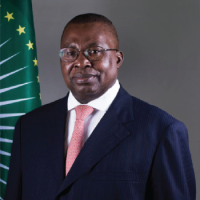
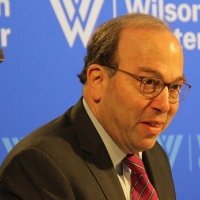
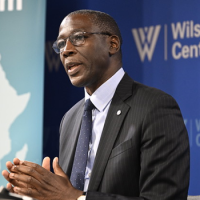
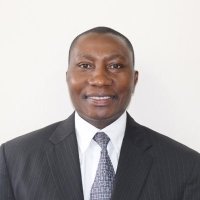
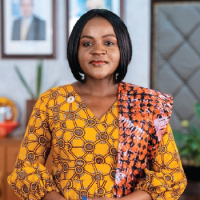

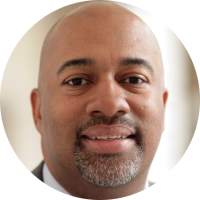
Moderator
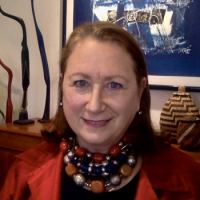
Hosted By

Africa Program
The Africa Program works to address the most critical issues facing Africa and US-Africa relations, build mutually beneficial US-Africa relations, and enhance knowledge and understanding about Africa in the United States. The Program achieves its mission through in-depth research and analyses, public discussion, working groups, and briefings that bring together policymakers, practitioners, and subject matter experts to analyze and offer practical options for tackling key challenges in Africa and in US-Africa relations. Read more



